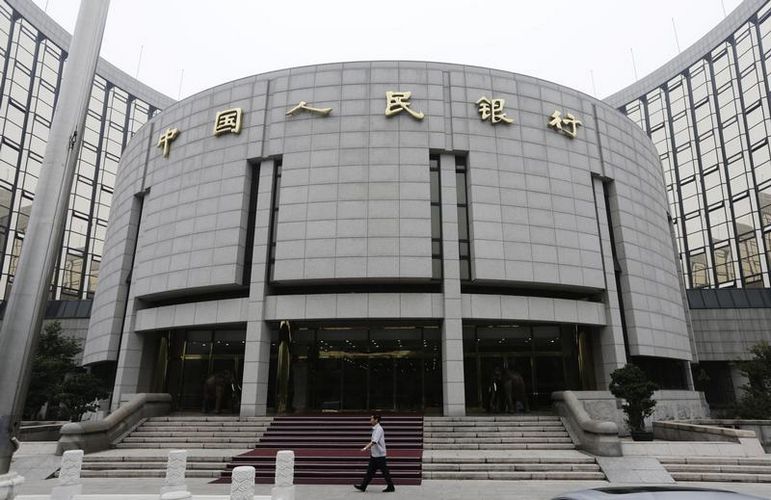What a contrast.
On the one hand, we are faced with more of the endless reports about who in the ECB said what about Quantitative Easing and what assets might or might not be purchased. On the other, there is the no-nonsense rate cut by the Peoples Bank of China.
At the time of writing, the Hang Seng China Enterprises Index was up 3.86%, aided by a slight though not significant weakening in the renminbi to US$6.1350. This move by the PBoC took the markets wholly by surprise.
We have for a while been wondering what the Peking administration might be thinking, given the indisputable signs that the great leap forward – to borrow the words of a previous leader – is turning into nothing more than a smallish hop. The undershoot from the intended 7½% growth target is still not significant, but there is clearly some worry that momentum is being lost and China is not the sort of place where downward revisions of objectives are undertaken with ease.
The HSBC Manufacturing PMI for November which we saw reported on Thursday has fallen to 50.0 It was of course as low as 48.0 in March, but having jumped back up to 52.0 in June there is no taste to see it fall to bits again. I just wonder what, if any, influence that figure might have had on the PBoC.
The rate cut seems to be aimed at the smaller businesses in the economy by bringing down the cost of borrowing, rather than pursuing the more common path it has in the past of encouraging lending. One way or the other, the PBoC has decided what is to be done, and it has done it
There is of course a deeper sub-text. The risk of loan defaults from slowing activity stressing the banking system is clearly being seen by central control. The aim is now to try to stimulate from the bottom up rather from the top down where more or less all that can be done has been done.
European delusions
Meanwhile, back in an ailing Europe, largely the cause for a slowing China, the same circular arguments are being rehashed and rehashed. Italian Finance Minister Pier Carlo Padoan has written an open letter to the European Commission in which he states that additional “budget correction” – cutting one’s suit to match one’s cloth to you and me – would “further clip the wings of fragile recovery deteriorating rather than improving debt dynamics”. I’m not quite sure where he sees a fragile recovery, the wings of which are supposed to be clipped.
From where I sit, Italy is in full recession which largely results from action not having been taken when the going was good. One gets rather fed up when the tiniest of dead-cat bounces are widely hailed as green shoots of recovery. Former UK Chancellor of the Exchequer, Norman Lamont, is still derided nearly 25 years after he coined the green shoots phrase in 1991 when the country was in full recession.
Italy has not had a positive quarterly GDP return since Q2 2011 and with exception of two quarters of flat growth, 11 of the past 13 quarters have been negative. Nominal annual output is still below that of 2008.
Greece is still struggling to convince the Troika to disburse the next bail-out tranche as it tries to explain why not meeting its agreed targets should not prevent it from receiving its much-need next cash €7bn injection. Here nominal annual GDP has dropped by over 30% from the pre-crisis peak in 2009. With that in mind, what was Brussels up to when it decided to play around in Russia’s back yard and adopt the Ukraine into foster-care?
Finally, this is Thanksgiving week with its two and a half days of frantic activity before the markets formally go into year-end mode. I suspect the holiday season won’t be quite as quiet as usual, as many banks and investors have not had what would be described as a banner year. The desire to make just a bit more in the closing phase might easily lead to some unusual volatility although we have also seen some early book-squaring. The risk that what limited liquidity there is could fade into insignificance ’ere long is also not to be underestimated.
It’s never over until the fat lady sings and she is not, as far as I can tell, that close to the stage door yet.

